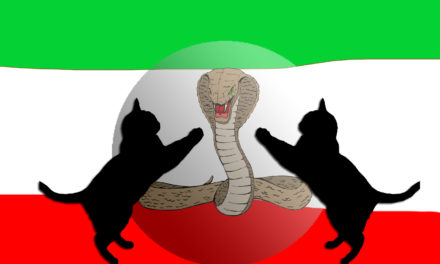There are currently an estimated 53.1 million orphans in sub-Saharan Africa, which comprises 12 percent of all children throughout the continent.
This is greater than the total number of children in Denmark, Ireland, Norway, Canada and Sweden combined.
A number of strategies have been introduced to provide care and support for these children, the most common response being the expansion of orphanage institutions. Institutionalization should be the last resort for children. Orphanages have an extremely limited capacity. They are financially inefficient, and there are long-term psychosocial ramifications.
Furthermore, this response is devastating. Many orphaned children have a surviving parent or relative willing to care for the child, but they are unable to due to poverty.
Therefore, there is an immense need for immediate policy changes within The United Nations Children’s Fund (UNICEF), United States Agency for International Development (USAID), Save the Children and other major donors supporting traditional orphanage institution
Extensive evidence has made it clear that the psychosocial well-being of orphaned children living in an institution is low.
Through institutionalization, children are faced with impaired cognitive and physical development.
With an increased risk of depression, anxiety and much more, children within orphanages are 3.5 times more likely to suffer from psychiatric disorders when compared with children living among family.
When compared to orphans within foster care, children who are housed in orphanages have higher cognitive and mental inhibition, with significantly lower IQ and test scores. Moreover, orphaned children within institutions lack consistent nurturing as well as overall love and affection.
As a result, children’s social development is impaired and leads to long-term sociological regression.
Community-based orphan care has been identified as the most effective and efficient way of caring for orphans, in addition to providing the basic human right of a family to children.
Most orphaned children living within institutions have a surviving parent or close relative but are still enrolled into orphanages. Traditionally orphans in sub-Saharan Africa have been absorbed into extended families. Demographic data has displayed that even the poorest extended families usually take in children whose parents have died, but this is becoming increasingly difficult.
In 2008, UNICEF released a report stating that orphaned children are no longer able to rely on the current status of extended family support as “this coping mechanism has been overstretched by poverty and by the sheer number of children to be cared for…”
This burden of care and support is falling on the very young and elderly, which exacerbates household poverty.
As orphanages expand across Africa with Western charity donations, the families who care for the vast majority of orphans receive no support.
Therefore, there is a need to assist these families in their care for orphaned children. Results from an experimental program in Malawi show that small allocations of cash ranging from $4 to $20 per month to impoverished extended families are more efficient and effective than institutions.
When applied to a cash-transfer system, the $1,500 per year cost of sponsoring a child within an orphanage is able to provide eight families with grants.
A randomized community trial conducted by Boston University found that families who received grants had improved nutritional status, better health and higher rates of school enrollment when compared to children in families who received none.
This analysis demands the immediate shift in orphan care towards that of community and family-based support programs.
The solution often provided by Western-based charities, churches and non-governmental organizations is institution-based care. This method of orphan support is inefficient and ineffective, while causing immense repercussions for children’s physical, cognitive and social health.
Sheela Bowler is a second year in the Masters of Public Health program in Global Health from Seattle, Wash.
The Emory Wheel was founded in 1919 and is currently the only independent, student-run newspaper of Emory University. The Wheel publishes weekly on Wednesdays during the academic year, except during University holidays and scheduled publication intermissions.
The Wheel is financially and editorially independent from the University. All of its content is generated by the Wheel’s more than 100 student staff members and contributing writers, and its printing costs are covered by profits from self-generated advertising sales.






There was an article on this in the most recent Scientific American.
This sentence makes no sense: “Many orphaned children have a surviving parent or relative willing to care for the child, but they are unable to due to poverty.” The word orphan means a child with no living parent, although UNICEF and others are liberal in their definition.Why use the term “orphan” if it’s clearly the wrong word? I adopted two children from orphanages who each have two living parents. Reporting – and thinking – cannot be accurate and clear if we persist in using words that obfuscate meaning.
Hi Rachel – Thanks for your thoughtful response. I agree we must all be accurate in our word choice to facilitate change. However I have to disagree with your definition of “orphan”, particularly in reference to the way it is used in global health and development. UNICEF, SOS Children Villages, and so many more, “define an orphan as a child who has lost one or both parents.” (http://www.unicef.org/media/media_45279.html). Therefore it is accurate to use the term “orphan” when referring to a child who has just one deceased parent. This is the widely used definition, and the basis for global statistics. Thank you.
Check out Nyumbani Village.. a semi-sustainable 1000-acre village that serves as a community “orphanage” for Kenyan children whose parents have died of AIDS: http://www.nyumbani.org/nyumbani-village-hope-future
The village pairs elders who’ve lost children to AIDS with children who’ve lost parents to AIDS, essentially bridging the two generations. It’s an interesting, cost-effective model that may be of interest to you.
Hi Naveed – Thanks, I worked for them through the Rollins program as well!
Rachel Stuart, your response is quite logical. It is not true to say UNICEF defines (and they were behind the original redefinition) an orphan as having lost one or both parents. They actually define an orphan in a developing country as a child who has lost one or both parents. In rich countries, orphan still means a child who has lost both parents. But during a period of massive HIV related funding, the new definition of orphan for people in developing countries multiplied the problem by 10 overnight. Suddenly people realized their own children were in a category that could make them lots of money. Just as suddenly, ‘orphanages’ popped up like mushrooms and there were orphans (90% of whom had at least one parent) everywhere. Existing levels of poverty, which had been extreme for a long time, were brought into the focus of HIV, HIV orphans and things that donors wanted to fund.
Hi Sheela-I wonder if you’ve considered the daming impact your words can have on well run orphanages. In S Africa I am involved with a really well operated orphanage that turns out unbelievably well adjusted adolescents, particularly so when you take into account that many entered the orphanage with severe emotional and/or health issues. Your broad brush emotive statements lump all orphanages into one class. This type of “academic” rhetoric is sized on by governmental departments to justify why funding for all shelters should be limited or withdrawn claiming that it is better for a child to be raised in a family environment. I wonder if your research quantified in any way the number of orphans (with or without parents!) who live with relatives but are virtual slaves and objects of abuse? Having been involved with street children in S Africa whose numbers continue to escalate, I have to be believe that we’ll managed orphanages are a viable alternative to a family or community upbringing. I don’t disagree with your statements, I just find them reckless particularly when they are blanketed with an academic superiority.
I wonder if Science Nerd could direct me the article mentioned in his/her reply.